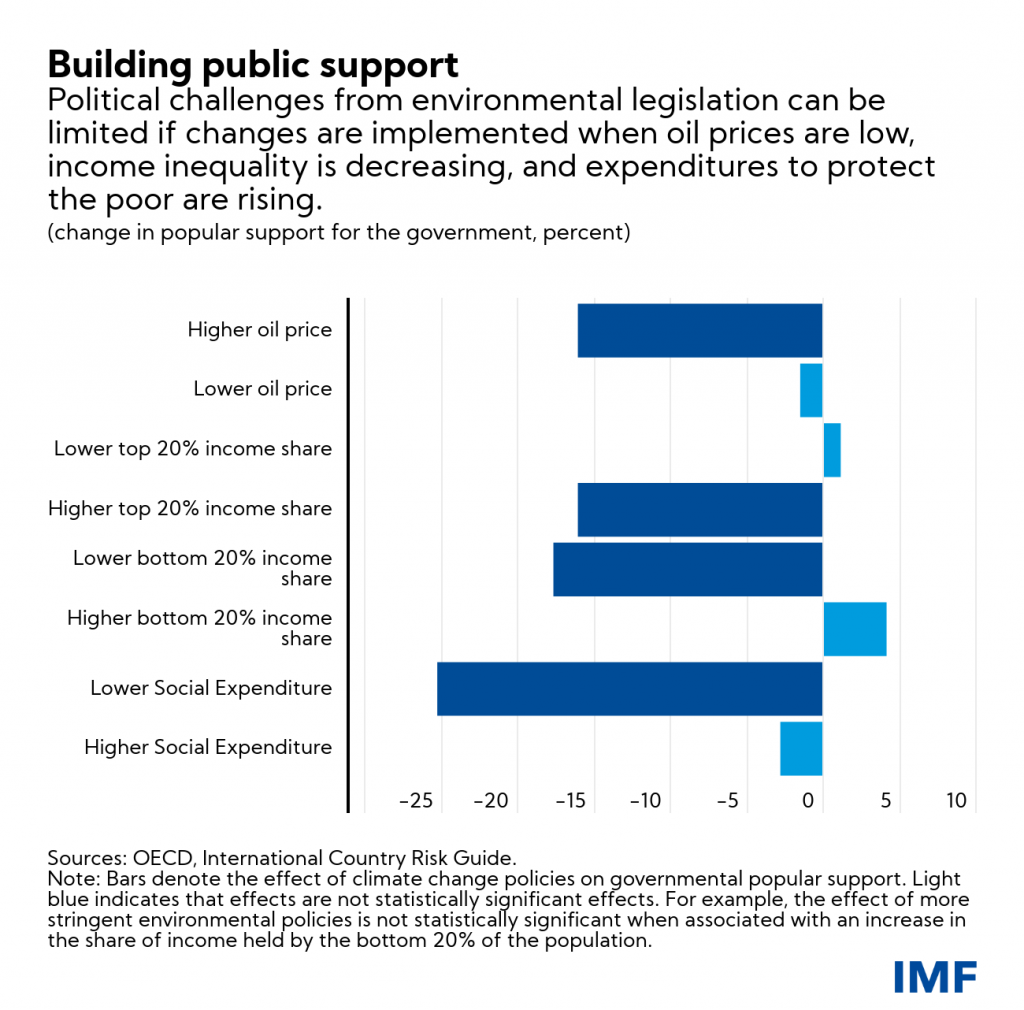Managing The Political Economy Of Climate Change Policies – Analysis
By Davide Furceri, Michael Ganslmeier and Jonathan D. Ostry
Few issues have sparked more attention than how to avoid environmental and human catastrophe from climate change. But even in the wake of massive public protests and an ambitious agenda since the 2015 Paris Agreement, governments are wary of the political costs of enacting climate mitigation policies.
In recent IMF staff research, we identify strategies that can minimize or even eliminate such challenges.
In the first analysis of its kind, we combined information on the political aftermath (governmental popular support) of policy changes with information on the policy changes themselves in a sample of 31 OECD countries. Our data on political support comes from the private consultancy PRS Group’s International Country Risk Guide.
We found that climate change policies—especially market-based measures such as a carbon tax on fossil fuels, which are the most effective to limit pollution levels—are likely to face opposition not only from energy-using industries, but from the public at large.
Our new research, however, suggests that these costs can be avoided if the design of mitigation policies takes into account political economy dimensions and complementary policies are deployed to protect vulnerable households (for instance, as proposed in previous IMF research) who may lose out in the short term from the transition to a greener economy:
- To the degree that higher carbon taxes have a bigger adverse impact on poorer segments of the population, governments need to keep a watchful eye on how mitigation policies can affect inequality. Political costs are negligible when income inequality is held in check, either through the design of the mitigation policies themselves, or because of the adoption of complementary policies that protect the poor and allow them to bounce back from the dislocations inflicted by higher carbon prices. In contrast, when inequality increases, our results suggest those costs will tend to be high.
- Providing social protection to the poor and/or workers whose jobs are threatened is also key. Our results show that political costs are muted when social safety nets are expanded to provide insurance against lay-off risks, and active labor market policies are expanded to give displaced workers a fair shot.
- Advancing mitigation policies in times of low oil prices is also beneficial, since people will suffer less from higher carbon prices when energy is cheap. The structure of the industrial base is another consideration: economies with a large industrial base reliant on dirty energy (like coal) inputs will be more challenged in building support for mitigation, and are likely to suffer more negative political impact. Diversifying the industrial base may thus help to facilitate climate mitigation policies.
Our research also suggests that options that may be second-best from an economic efficiency standpoint often have more appeal politically, provided that they come with a transparent analysis of the costs and benefits. For example, we find that non-market-based instruments, such as emission limits on power plants and public subsidies and investments in research and development, tend to be more palatable to electorates.
Climate change will remain the defining global challenge of our age. As with all policies that generate winners and losers, environmental legislation requires public support to be viable. Our research identifies key lessons to help build such support and use the current crisis as an opportunity to advance low-carbon and climate-resilient economic growth.
*About the authors:
- Davide Furceri is Deputy Division Chief of the Regional Studies Division of the Asia and Pacific Department of the IMF.
- Jonathan D. Ostry is Deputy Director of the Asia and Pacific Department at the International Monetary Fund and a Research Fellow at the Center for Economic Policy Research (CEPR).
Source: This article was published by IMF Blog


